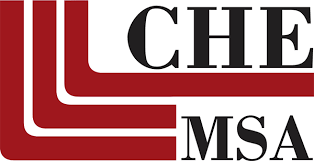Middle States Commission on Higher Education (MSCHE)
The Middle States Commission on Higher Education is an independent organisation that provides regional accreditation to the universities of Higher Education awarding a post secondary degree and licensed to operate in Middle States regions. Read the blog to know more about MSCHE, its standards, governing bodies and more
Education accreditation is the noble process of monitoring and assuring the quality of education provided by different educational institutions. This generally includes evaluation and verification of the operations and services of schools/colleges/universities.
The Middle States Commission on Higher Education (MSCHE) is part of the six regional accrediting agencies for higher education in the U.S.
What is the Middle States Commission on Higher Education (MSCHE)?
The Middle States Commission on Higher Education is a voluntary and non-profit regional accreditation commission. It performs peer evaluation and provides accreditation for higher education institutions.
MSCHE serves accreditation activities for institutions in Delaware, the District of Columbia, Maryland, New Jersey, New York, Pennsylvania, Puerto Rico, and the U.S. Virgin Islands and also includes distance education and correspondence education programs offered by those organizations.
The Middle States Commission on Higher Education is recognized by the U.S Secretary of Education, as well as by the Council on Higher Education Accreditation (CHEA) to provide regional accreditation.
The Commission strives to maintain and encourage educational eminence across organizations with assorted missions, student populations, and resources.
 source - msche.org
source - msche.org
Standards of MSCHE accreditation
MSCHE scrutinizes educational institutions on the following categories-
Standard I: Mission and Goals
Standard II - Ethics and Integrity
Standard III - Design and Delivery of the Student Learning Experience
Standard IV - Support of the Student Experience
Standard V - Educational Effectiveness Assessment
Standard VI - Planning, Resources, and Institutional Improvement
Standard VII - Governance, Leadership, and Administration
Source: MSCHE
Eligibility requirements for MSCHE accreditation
The institutions should adhere to the standard requirements in order to be eligible for the accreditation process. It should fulfill the standards in terms of resources, education, and student experience.
The following are the eligibility requirements for MSCHE accreditation.
-
The institute must be authorized and licensed to operate as a post-secondary educational body in the regions of the Middle States.
-
Authorization should be from the governing body of the operating jurisdiction.
-
The educational body should be fully operational in nature and at least one batch should have passed so that their reviews can be taken into consideration.
-
The institution must have a central mission and should abide by it. It should comply with the comprehensive quality and standards in terms of resources as specified by MSCHE.
-
Institute must comply with the operational laws of the state in which it is located and must disclose information about every resource (financial and non-financial) that it holds. A written declaration is to be provided by the college stating every resource that it holds an authorization to operate.
-
The institution evaluates its programs and provides information regarding the outcomes and performance.
-
The institute has a core of faculties to ensure sure that the educational programs can run smoothly providing a high-quality learning experience.

source - Adobe Stock
How does the institution begin the accreditation process?
In order to receive accreditation, the institution needs to become a candidate for the accreditation status. The institution should follow the given steps.
-
The institution must perform a self-assessment to ensure it is on par with the standards set by MSCHE.
-
The respective institute official should file the application to start the accreditation process.
-
Prepare a self-study visit and develop a report for the same.
-
Use evidence inventory to prepare documents in compliance with the Standards for Accreditation and Requirements of Affiliation.
-
Host an on-site evaluation visit for the accreditation team.
-
The educational body should have the resources (time, personnel, financial) to involve in the process of applying for 'Candidate for Accredited Status'.
How long does it take?
The duration of accreditation can range from three to five years. If the institution has the required resources, then it can receive accreditation within a period of three years itself.
Middle States Commission on Higher Education decision making bodies
The work and decisions regarding the accreditation process and status are carried out by the following groups.
-
Members of the Commission - The MSCHE consists of 26 members who are elected by colleges and universities that are accredited.
-
Peer Evaluators - Evaluators team are responsible for a site visit and review to evaluate the accreditation or re-accreditation of an institution.
-
Commission Staff - They ensure that the organization is carried out by full-time staff personnel.
-
Speakers and Panellists - The panelist and speakers provide special expertise about the workshops and accreditation conducted by an institution.

source - Pexels.com
MSCHE’s strategic directions for student success
The MSHCE aims towards persistent student success and comprehensive education standards. Some strategies adopted by the Middle States Commission on Higher Education are given here.
-
Offer reliable assurance of educational quality through an efficient accreditation model that promotes innovation.
-
To protect appropriate resources to build a forward-looking and adaptive organization.
-
Encourage the value of accreditation through advocacy and education.
-
The Commission maintains its historic commitment to quality assurance in institutions of higher education.
-
MSCHE maintains the U.S. Department of Education recognition and ensures that it continues to meet federal regulatory requirements.
-
It provides service and support to member institutions as they implement accreditation standards and engage in continuous improvement initiatives.
-
The Commission maintains a sustainable business model.
Middle States Commission on Higher Education accredited universities and colleges
The colleges and universities must comply with the standard requirements and meet the eligibility criteria to receive accreditation by MSHCE. Few of the colleges and universities that fall under MSHCE accreditation are listed below.
| MSCHE Accredited Colleges and Universities | |
| Adelphi University | American University |
| Barnard College | Berkeley College-New Jersey |
| Brookdale Community College | California University of Pennsylvania |
| Delaware State University | Elmira College |
Conclusion
Since the incorporation of Mid Atlantic Commission on Higher Education into the education system for higher education in Delaware, the District of Columbia, Maryland, New Jersey, New York, Pennsylvania, Puerto Rico, and the U.S. Virgin Islands, it has accredited a large number of colleges by conducting accrediting activities.
Its accreditation policies have redefined how the whole process works and its tie-up with Middle States Association has allowed it to expand and work effectively in the coverage areas by promoting high educational quality in the related institutions under its umbrella.
Blogs you might be interested in
Frequently Asked Questions
1.Is the Middle States Commission on Higher Education legitimate?
Yes, the Middle States Commission on Higher Education is legitimate as it is recognized by the U.S Secretary of Education as well as by CHEA.
2.What is Middle States Accreditation?
The Middle States Association is a non-profit, peer-based association providing regional accreditation to schools and colleges in Mid Atlantic U.S.
3.What is a regionally accredited college?
Regionally-accredited schools and colleges are reviewed and accredited by their designated regional agency.
4.Does the Commission rank colleges?
No, American colleges and universities vary in the types of education programmes, resources, and mission that it is next to impossible to give valid rankings based on educational quality.
5.How are complaints against the Commission handled?
All the complaints from colleges and universities should be addressed to the president or chair of the commission who will take the necessary actions.
6.Can the Commission recommend a college or university?
No, the selection of the college or university is an individual decision and the commission plays no role in it.